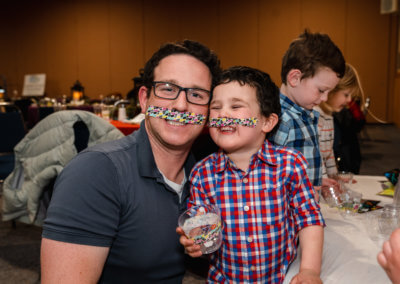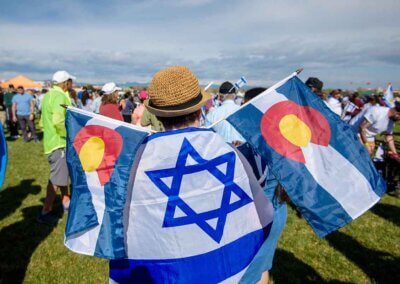Shabbat Shalom: Simple Math
Torah study can be frustrating. At times, it feels like algebra used to feel: of what possible use will quadratic equations be when I grow up? Some of the laws and practices in the Torah feel just as arcane as quadratic equations. Their meaning, distant, elusive, sometimes irrelevant. But sometimes, current circumstances reveal hidden truths.
This week’s Torah portion, Shoftim, contains such a truth. At the very end of the reading, we’re instructed that “if [a stranger] be found slain in the land… lying in the field, and it not be known who has smitten him, then the elders and judges shall come forth, they shall measure unto the cities which are round about him that is slain… And the elders of that [closest] city shall break the heifer’s neck there in the valley.”
Someone has been murdered. The elders are called out—literally—to the proverbial scene of the crime. They must find the killer, but if the killer remains unidentified, a heifer must be sacrificed, its blood marking the site of murder, and the surrounding field deemed off limits from plowing or sowing. In other words, when one among us commits the ultimate sin, all of us are accountable for the death.
The ancient, strange, and bloody practice of beheading a heifer that is prescribed in the portion is revealing. Our sages teach that, in this scenario, we might presume that the victim, a stranger, enters town, finds neither shelter nor nourishment, and leaves. And, say the sages, we might further presume that the perpetrator similarly lacked sustenance and that he was, thereby, driven to commit a capital crime. The concept of bloodshed in the passage in question is interpreted broadly to include our indirect responsibility for the death of a human being through neglect and inattention to another’s basic needs.
With the hindsight that comes only after decades have elapsed between me and those quadratic equations, I can see that the math lessons I struggled to find relevance in were, in the end, more important than they felt at the time. Because imagine a society wherein each citizen cared so much every other citizen—even, and maybe especially, strangers—that no one went without shelter and no one went hungry. A place where one plus one added up to more than two.
Shabbat Shalom,





